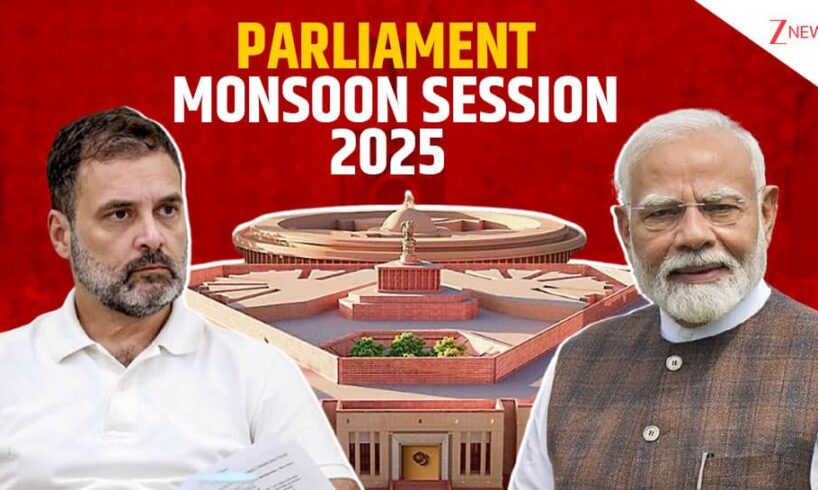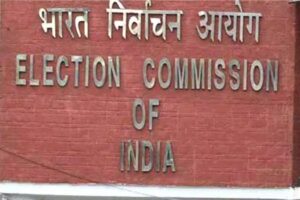
Parliament’s Monsoon session kicked off on July 21, 2025, and was marked by fiery debates, angry rebuttal, and incomplete business. In the session marked by protests and Opposition sloganeering, both houses were adjourned sine die on Thursday, the last day of the session, as per schedule. With few achievements, the session turned once again into a lost opportunity. The Opposition parties showed their anger against the Special Intensive Revision (SIR) by staging protests and sloganeering, which led to the adjournment of the houses more than one would expect. The last-minute introduction of a bill to sack PM, CMs, and Ministers if arrested on graft charges added to the chaos.
The disruptions resulted in:
1- Delayed legislation: Disruptions in Parliament affect essential reforms and governance of the nation.
2- Financial losses: The delayed proceedings result in stalled budgets and unmet timelines. The cost of running a Parliament session reportedly stands at Rs. 2.5 lakh per minute.
3- Long-term setbacks: One major issue that arises out of continued adjournments is the failure to modernize laws.
Add Zee News as a Preferred Source
Bills In Monsoon Session
1- New Income Tax Bill- It was approved by Parliament and will be sent to the President for assent to become an Act. It is set to replace the over six-decade-old Income Tax Act, 1961.
2- National Sports Governance Bill, 2025 and National Anti-Doping (Amendment) Bill, 2025- The Rajya Sabha on August 12 passed the National Sports Governance Bill, 2025, and the National Anti-Doping (Amendment) Bill, 2025. Meanwhile, the Bills, already cleared by the Lok Sabha, were moved by Union Sports Minister Mansukh Mandaviya.
3- Indian Institutes of Management (Amendment) Bill, 2025
The Lok Sabha passed the Indian Institutes of Management (Amendment) Bill, 2025, on August 19 through a voice vote, without any discussion.
4- ‘The Promotion and Regulation of Online Gaming Bill, 2025’ was passing in both houses.
5- Constitution (One Hundred and Thirtieth Amendment) Bill, 2025; Government of Union Territories (Amendment) Bill, 2025, and The Jammu and Kashmir Reorganisation (Amendment) Bill, 2025
Apart from the above-mentioned bills, Parliament also approved the Indian Ports Bill 2025, the Readjustment of Representation of Scheduled Tribes in Assembly Constituencies of Goa Bill, 2025, and the Coastal Shipping (Amendment) Bill, 2025, amongst others.
Also Read: Highlights | Parliament Monsoon Session 2025: Both Houses Adjourned Sine Die
Operation Sindoor Debate
During the session, a long debate was held on ‘Operation Sindoor’ launched by the Indian Armed Forces on May 7 to avenge the brutal killings in the Pahalgam terror attack. While Prime Minister Narendra Modi-led Bharatiya Janata Party (BJP) claimed that the Operation was a massive success, the Opposition, led by Congress MP Rahul Gandhi, questioned the timing of the ceasefire.
The Operation Sindoor debate was a high point in the Monsoon Session 2025. The Centre defended its actions during the India-Pakistan conflict, while Opposition leaders raised several questions about the government’s decisions at the time.
Prime Minister Narendra Modi, addressing the Lok Sabha during the debate on Operation Sindoor held in the Lower House on July 29, delivered a forceful account of India’s military response to the April 22 Pahalgam terror attack.
The PM asserted that India has set its own rules now after the Pahalgam attack, in which terrorists killed 26 individuals. He stated that Pakistan had anticipated a major retaliation, and India executed its plan with precision on the intervening night of May 6 and 7. He also clarified that no global leader had asked India to halt Operation Sindoor.
On the other hand, launching a scathing address during the key debate, Leader of the Opposition (LoP) in the Lok Sabha, Congress leader Rahul Gandhi accused PM Modi and the Central government of not giving operational freedom and operational maneuver to the Armed Forces during Operation Sindoor.
Gandhi also drew a comparison between the 1971 war and Operation Sindoor. The Congress MP noted that Field Marshal Sam Manekshaw had demanded six months to prepare for the Bangladesh Liberation War, and Prime Minister Indira Gandhi had agreed. He criticised Defence Minister Rajnath Singh’s statement that Operation Sindoor lasted 22 minutes and that India informed Pakistan immediately after the strike that only non-military targets were hit and escalation was not desired.
Amit Shah’s Angry Moment
During the discussion on Operation Sindoor in Lok Sabha, Union Home Minister Amit Shah, while External Affairs Minister (EAM) S. Jaishankar was speaking, accused Congress and the Opposition parties of lacking faith in India’s Foreign Minister and instead trusting in another country.
The Home Minister criticised the Opposition for allegedly trusting foreign entities over India’s own Foreign Minister. He further took a dig, saying this attitude is why the Opposition will likely remain there for the next 20 years.
Meanwhile, the government also confirmed that Operation Sindoor targeted key terrorist hubs and achieved complete operational success within just 22 minutes, eliminating over 100 terrorists and handlers.
Jagdeep Dhankhar Resignation
Fiery debates were not the only high point of this Parliament session. A major shock came with the sudden resignation of Jagdeep Dhankhar as Vice President, who cited health reasons for stepping down.
However, some suggest there was more to the story; speculations indicate he was asked to resign after accepting the Opposition’s motion to initiate impeachment proceedings against Justice Yashwant Varma in the Rajya Sabha. This reportedly irked the government, as they were also planning to introduce the motion in the Lok Sabha.
Opposition Protests
MPs of the INDIA bloc, led by Rahul Gandhi, staged protests against the Special Intensive Revision (SIR) of electoral rolls in Bihar conducted by the Election Commission of India (ECI), calling it ‘vote chori’. During their protest march, several leaders, including the Lok Sabha LoP.
As protests escalated each day, proceedings were repeatedly adjourned, leading to delays and no major business being done on time.
Bills To Sack Ministers, CMs, PM
What caught the eye most this season was Union Home Minister Amit Shah introducing three bills in the Lok Sabha, including the Constitution (One Hundred and Thirtieth Amendment) Bill, 2025, which proposes automatic removal of elected officials – Prime Minister, Chief Ministers, and Union Ministers – if they are arrested and detained for 30 consecutive days on serious criminal charges.
The bill, along with the Government of Union Territories (Amendment) Bill, 2025 and the Jammu and Kashmir Reorganisation (Amendment) Bill, 2025, was referred to a Joint Parliamentary Committee.
Copies of the bills were torn and thrown towards Union Home Minister Shah in the Lok Sabha in a sign of protest.
After the three bills were introduced, Congress MP KC Venugopal criticised the proposed legislation.
“BJP members are saying that this bill is to bring morality into politics. Can I ask the home minister a question? When he was the home minister of Gujarat, he was arrested. Did he uphold morality at that time?” the Congress leader said.
Shah responded, saying, “I want to clear the record. False charges were levelled against me, and I had resigned before being arrested out of moral responsibility. And I didn’t take up any post until I was acquitted by the courts…”
These remarks referred to the Home Minister’s 2010 arrest by the Central Bureau of Investigation (CBI) about the alleged fake encounter killings of Sohrabuddin Sheikh, his wife, and his associate.
The pending bills would now be taken up in the Winter Session that would be held later this year.
In conclusion, while the session was politically charged, with allegations, fiery speeches, and photographs of the Opposition’s protest march likely to be embedded in history, it failed to achieve substantial legislative progress or foster any substantial dialogue between the government and the Opposition.





